Anger boils over as feds begin wild horse roundup near Las Vegas
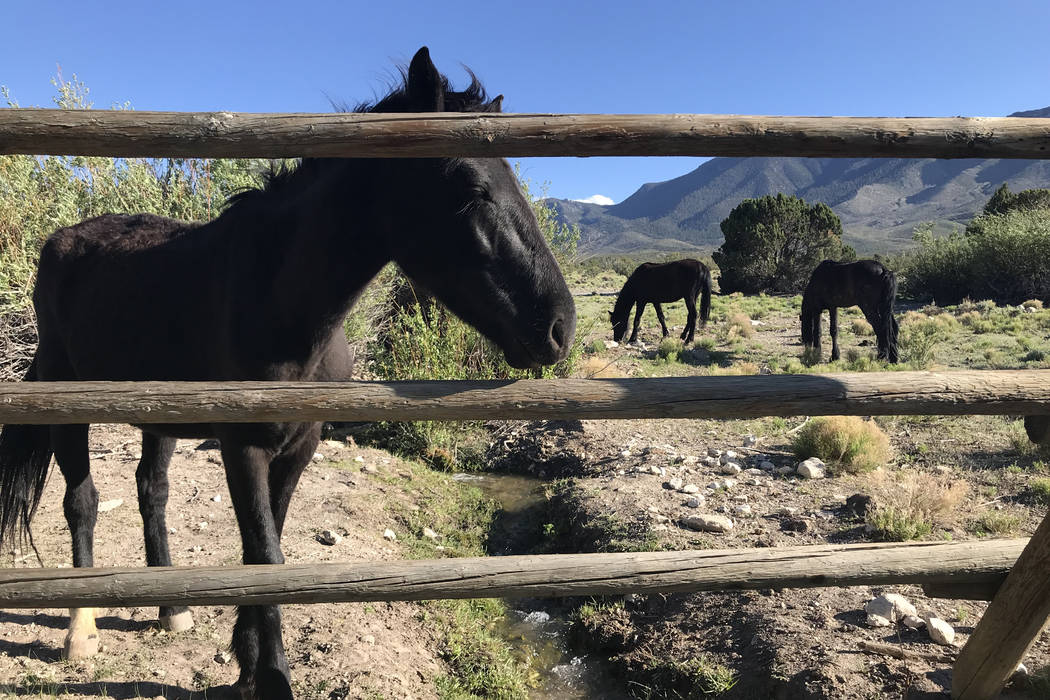
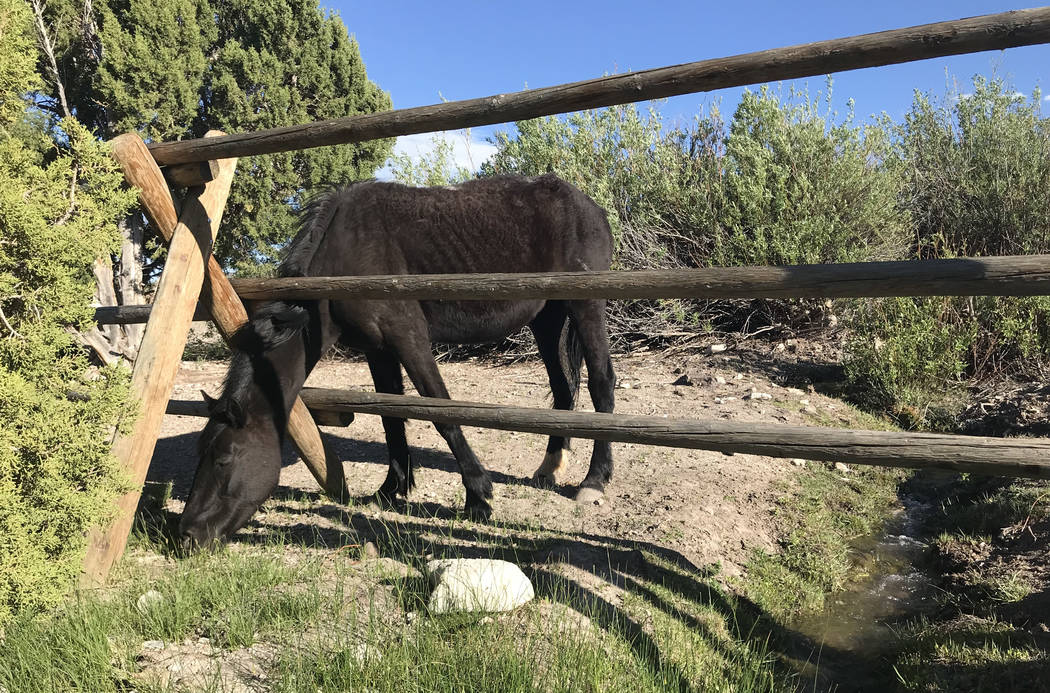
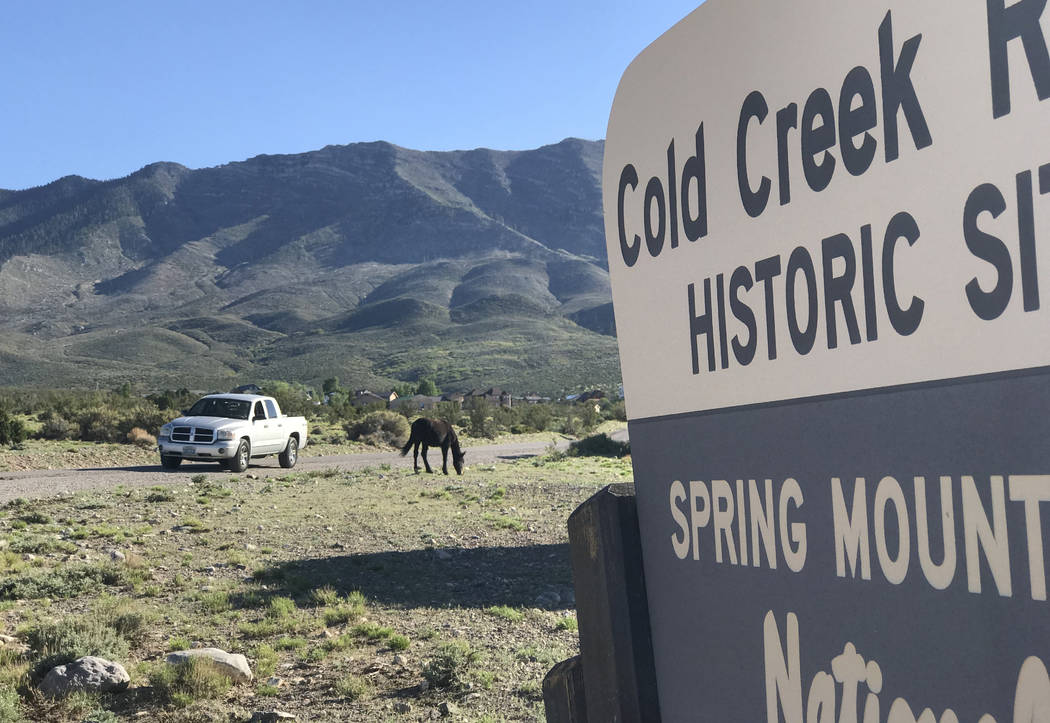

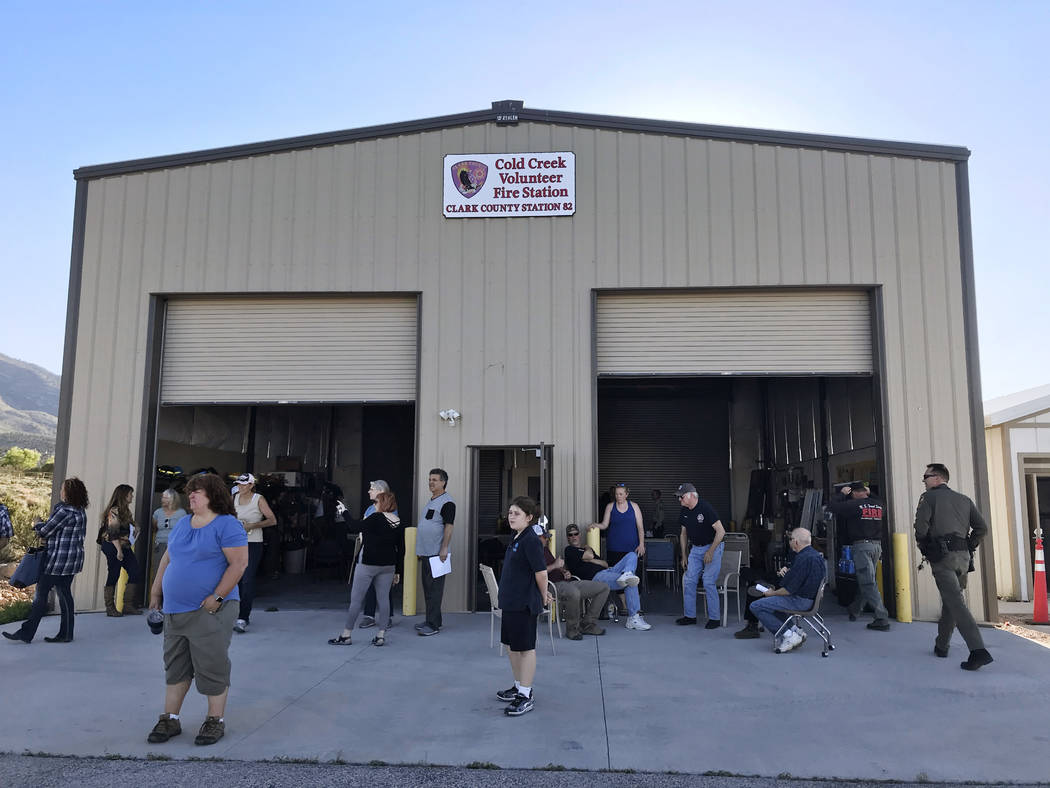
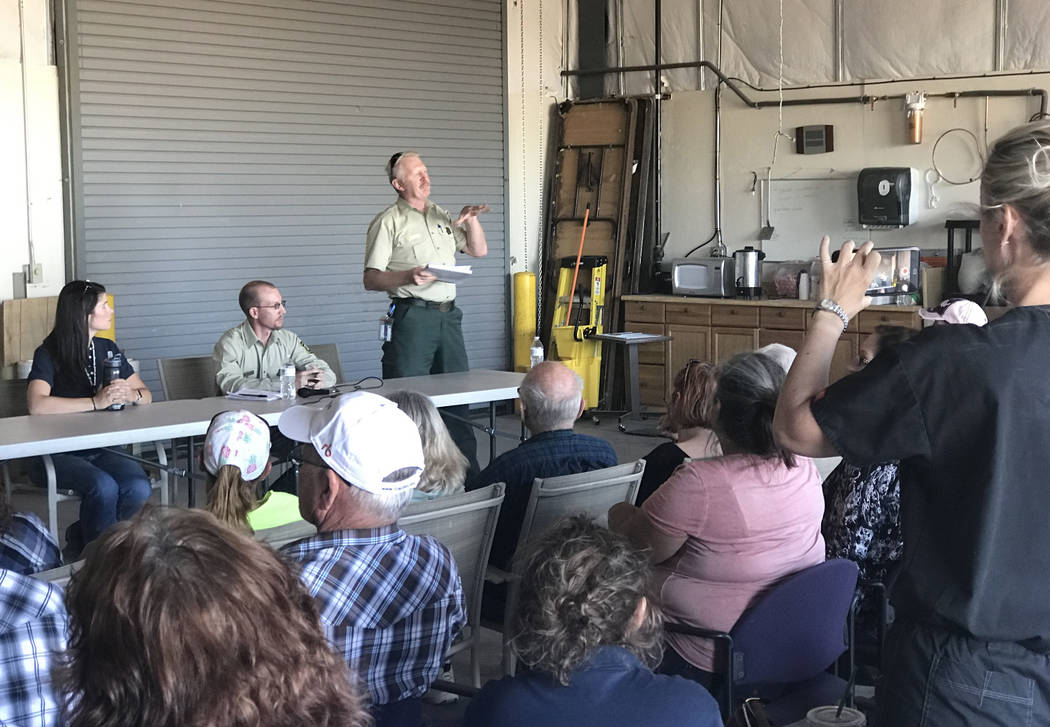
Federal officials launched an emergency wild horse roundup in the mountains northwest of Las Vegas on Thursday as nearby residents and mustang advocates angrily objected to the operation.
The Forest Service and the Bureau of Land Management planned to start trapping about 200 horses in the Cold Creek area on Monday, but officials said they moved up the start of the roundup once they secured a contractor for the job.
Donn Christiansen, who manages the Spring Mountains National Recreation Area for the Forest Service, said time is of the essence.
“These horses are suffering, and their condition is rapidly deteriorating,” he said. “The range they’re on can’t support them.”
Christiansen’s comments were met with shouts of “Liar!” and “Murderer!” in Cold Creek Wednesday night during an informational meeting on the roundup.
About 50 protesters gathered in the small community’s volunteer fire station, about 50 miles northwest of Las Vegas, to hurl questions and insults at Christiansen, Forest Service rangeland specialist Rixey Jenkins and BLM wild horse and burro specialist Tabitha Romero.
‘Round up the BLM’
Members of the crowd demanded photos of the starving horses and written proof of the poor range conditions. They said the roundup was cruel and unnecessary, and would lead to the deaths of pregnant mares and newborn horses.
Several audience members brought their own photos of healthy horses and recorded the meeting on their cameras and cell phones.
One woman showed up in a T-shirt that read, “Save the wild horses, round up the BLM.”
A man in the audience said he brought in an experienced ecologist of his own to review and refute the Forest Service’s assessment of the range conditions. He predicted that once all the horses are removed, the area around Cold Creek will become so choked that brush that there will be no way to protect the community from a wildfire. “Then we’ll sue your asses,” the man yelled.
“You’re supposed to be managing,” said a woman in the crowd. “I don’t see management, I see extinction.”
Officials said it should take a week to 10 days and to capture all but about 50 of the horses that live around Cold Creek.
Instead of aggressively herding the animals with helicopters and men on horseback, the contractor will be setting up corrals and luring the mustangs in with hay and water.
“They don’t run them at all. It’s pretty low key,” Romero said.
Horses will be offered for adoption
Christiansen said captured horses deemed healthy enough for transport will be trucked directly to a BLM holding facility in Ridgecrest, California, where they eventually will be offered for adoption or transferred to long-term housing off-range.
Horses not healthy enough to make the trip will go to a temporary holding facility at Oliver Ranch in Red Rock Canyon to be fed and cared for until their conditions improve. A veterinarian on site will determine if any of the horses are too far gone and need to be put down.
None of the captured horses will be returned to the wild.
Jenkins said a dry winter and persistent drought in Southern Nevada has left too little forage along the northeastern flank of the Spring Mountains. He said federal agencies started receiving photos from the public in February showing horses in poor condition, and those reports continued through March and April.
Normally, wild horses will roam in search of food elsewhere, but Christiansen said the animals around Cold Creek have become conditioned to expect handouts from humans.
“It’s illegal to feed them. It’s illegal to put salt licks out,” he told the crowd Wednesday night. “If you’re interfering with their natural state, we’ll have to talk about that.”
The Forest Service and BLM has been tracking the condition of the herd and its range since the last emergency roundup was conducted in 2015.
Some 234 horses were removed from the area during that operation, including 28 that were euthanized because of their poor health.
The land around Cold Creek is part of the Wheeler Pass Joint Management Area, which takes in more than 370,000 acres on both sides of the Spring Mountains.
According to the BLM, the area can sustainably support no more than 66 wild horses and 35 wild burros at one time.
Contact Henry Brean at hbrean@reviewjournal.com or 702-383-0350. Follow @RefriedBrean on Twitter.













